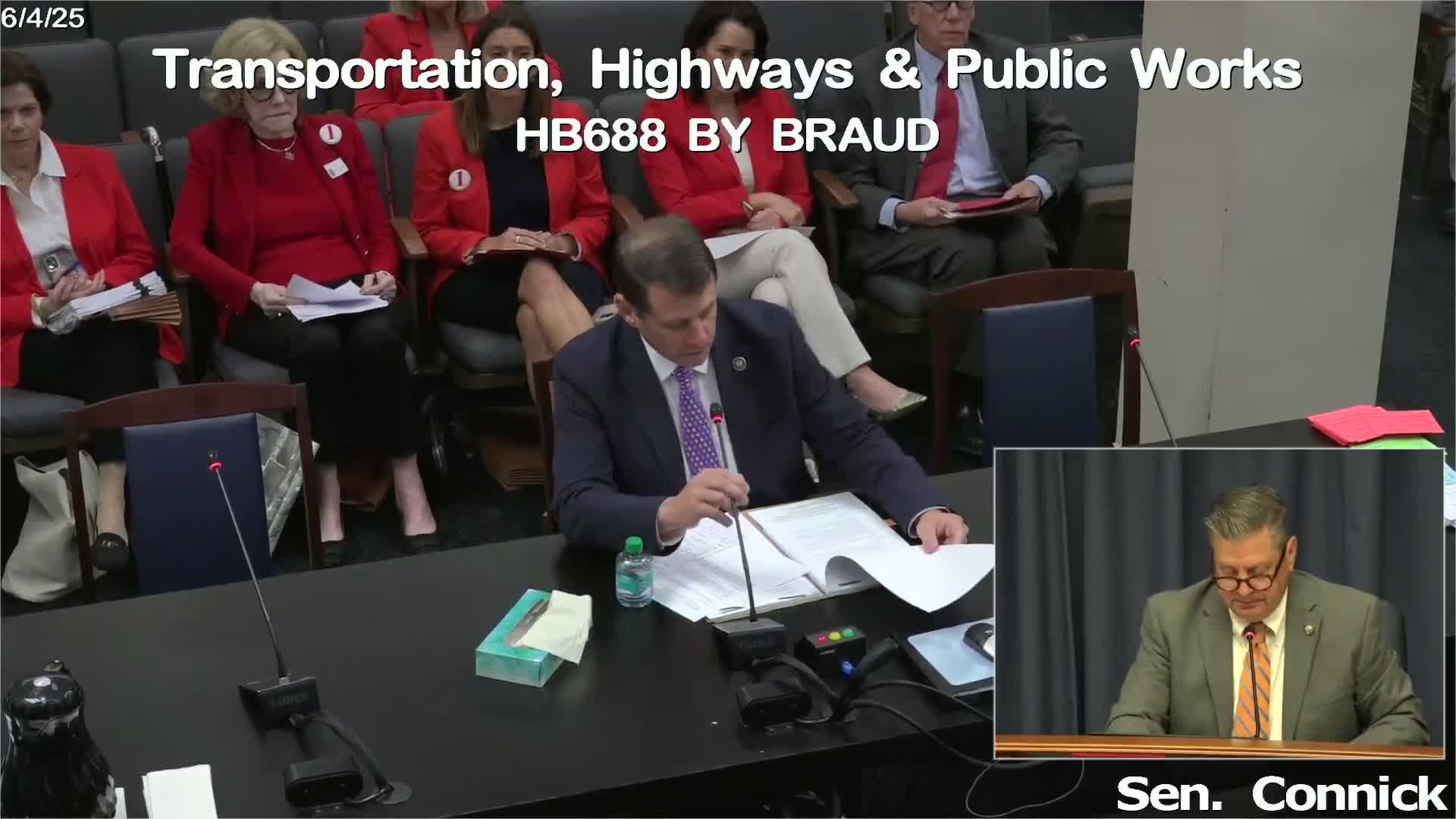Article not found
This article is no longer available. But don't worry—we've gathered other articles that discuss the same topic.
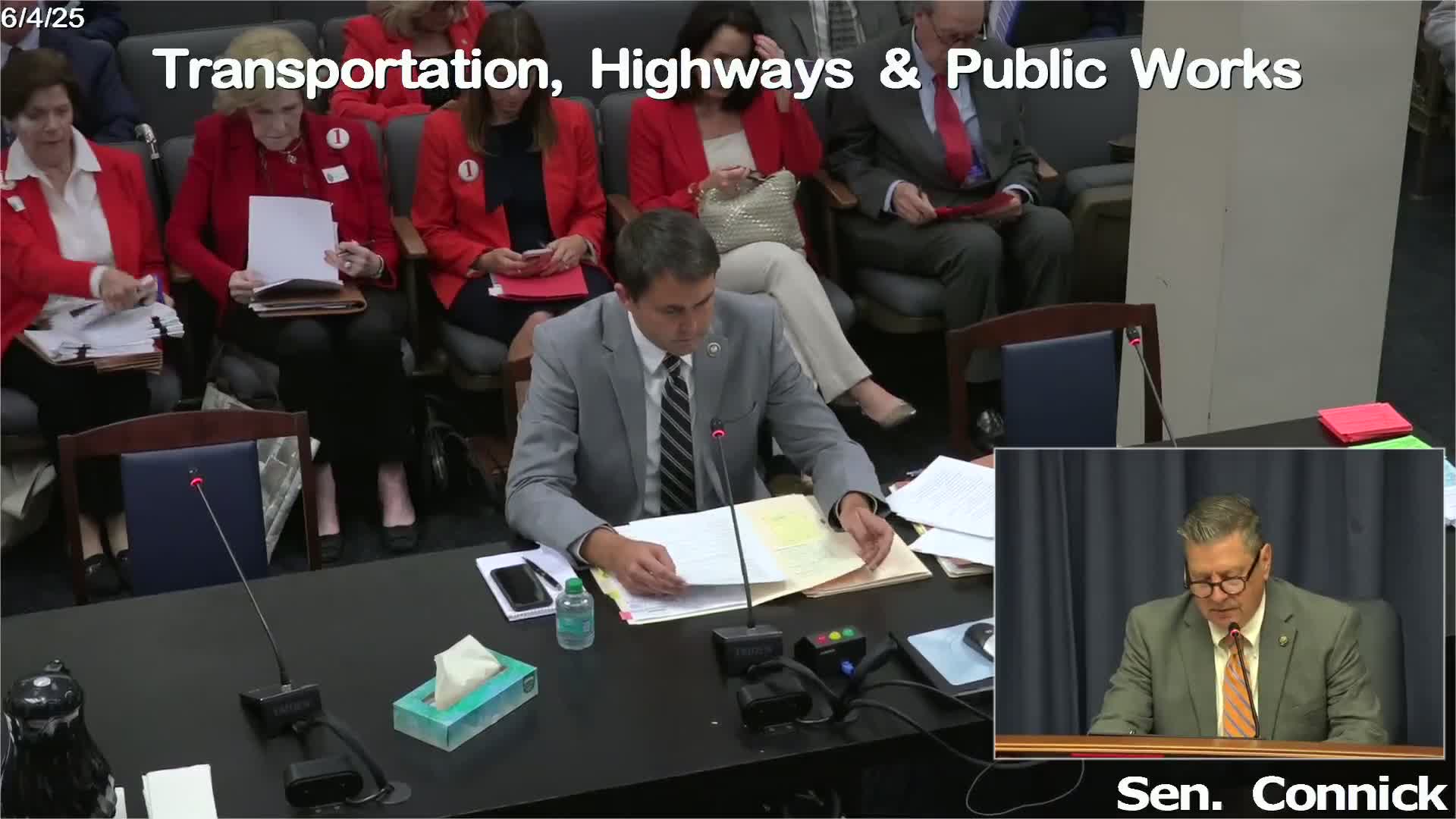
Senate committee advances DOTD reorganization bills creating Office of Transformation and highway construction entity
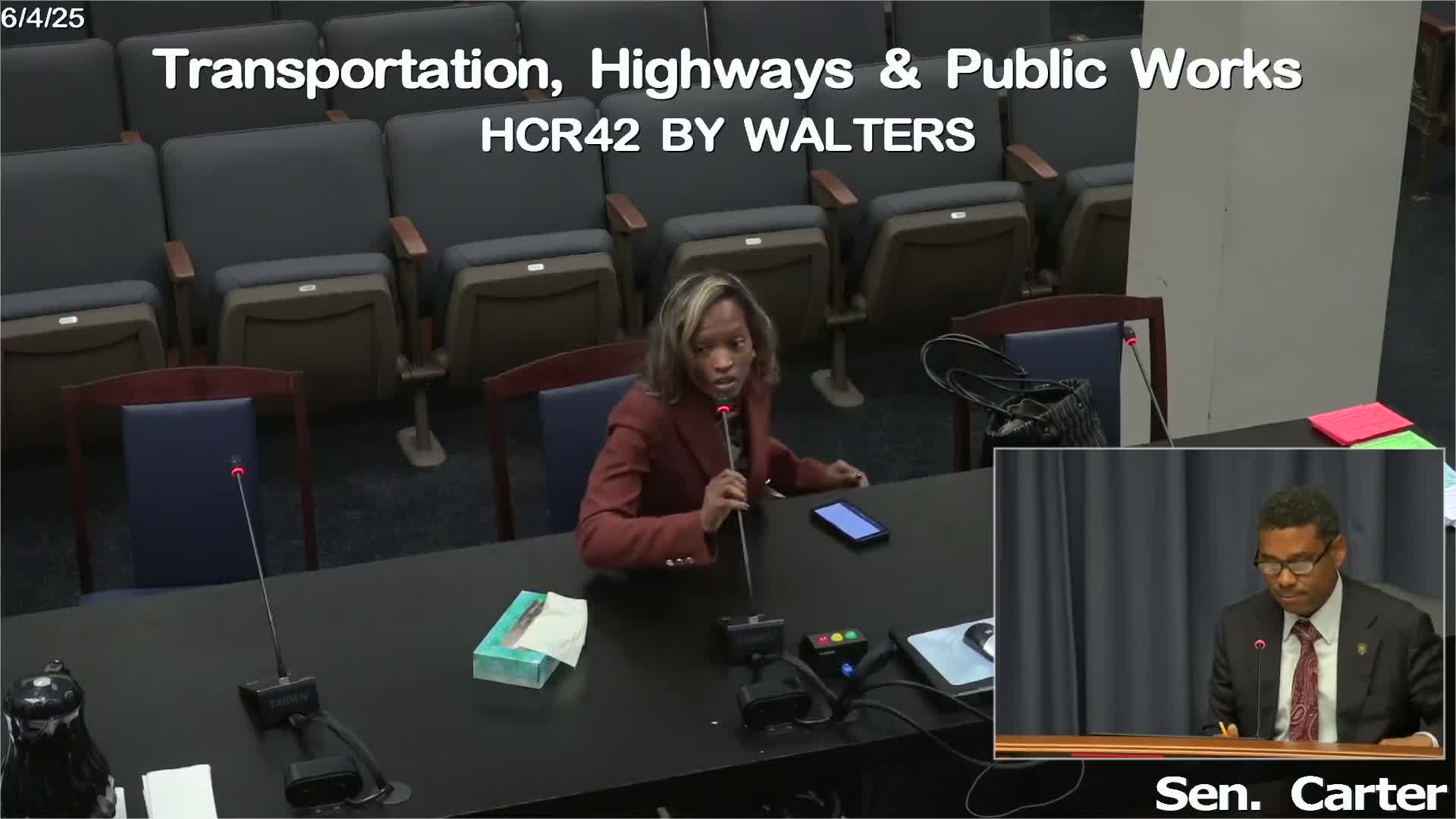
Committee sends resolution to study an Alzheimer’s identification card to OMB
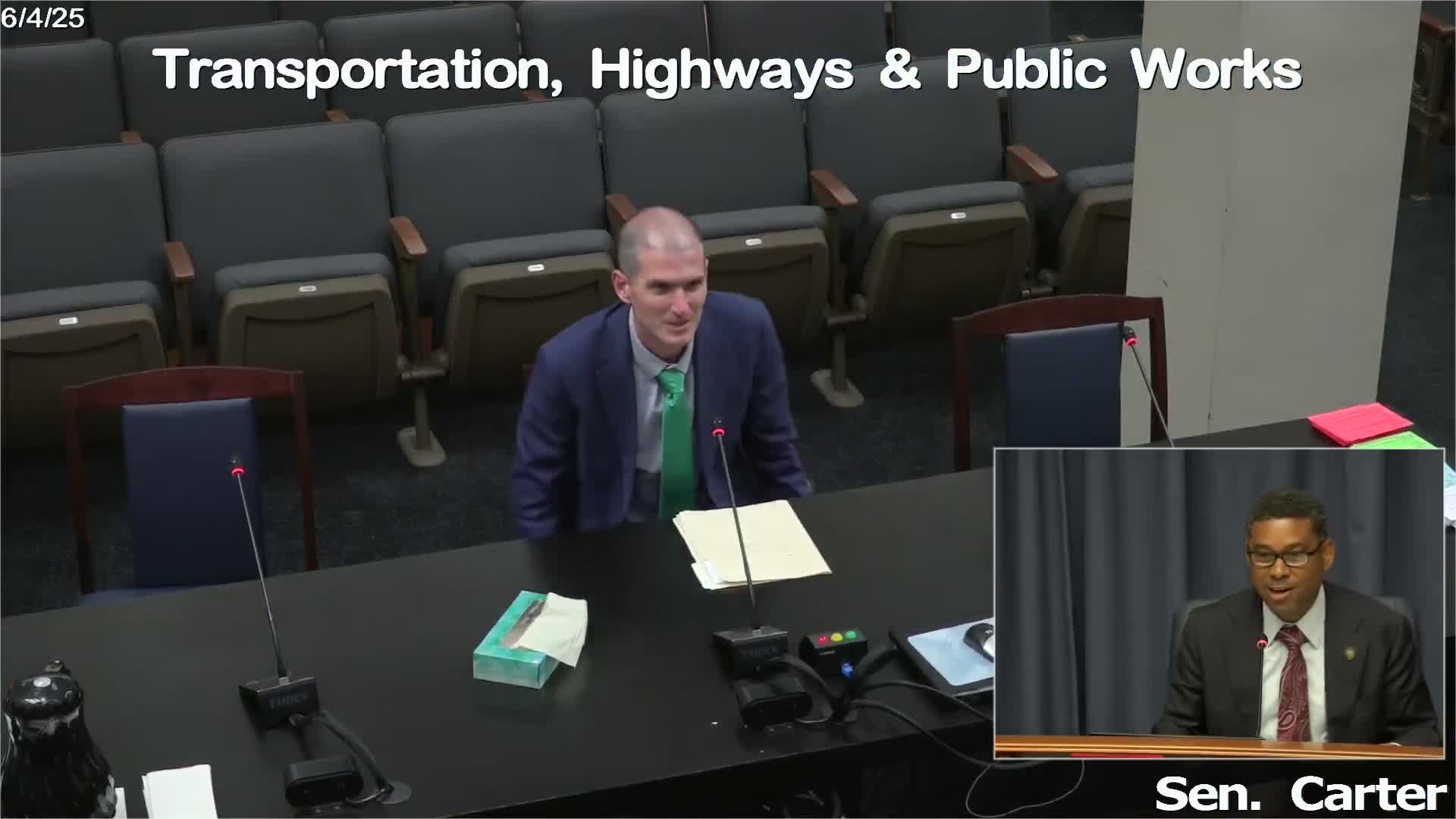
Senate panel approves North Caddo Medical Center CMAR contract path for a $4.5 million clinic project
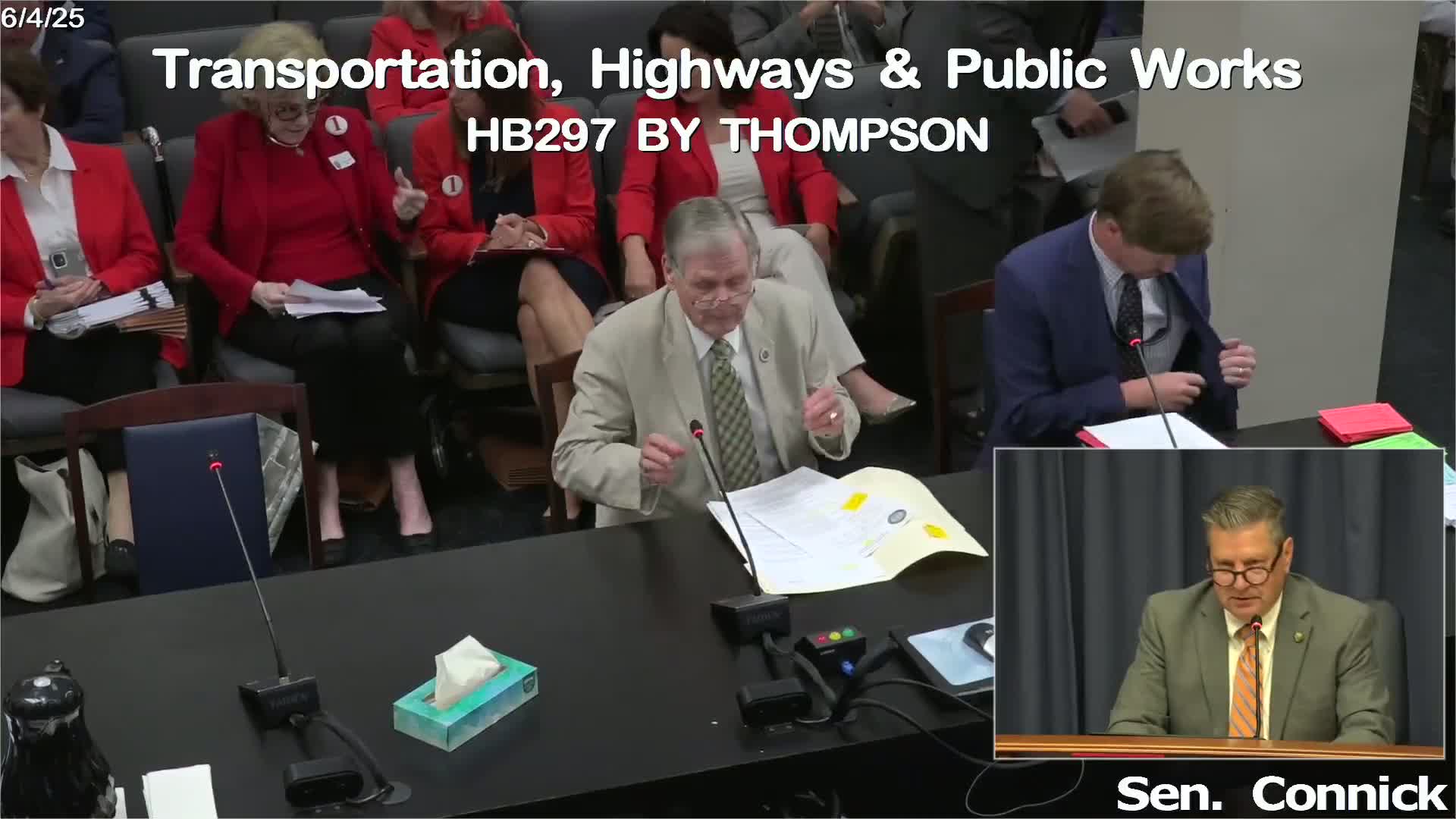
Committee approves higher spending limit for state parks emergency repairs, with reporting and sunset requirements
